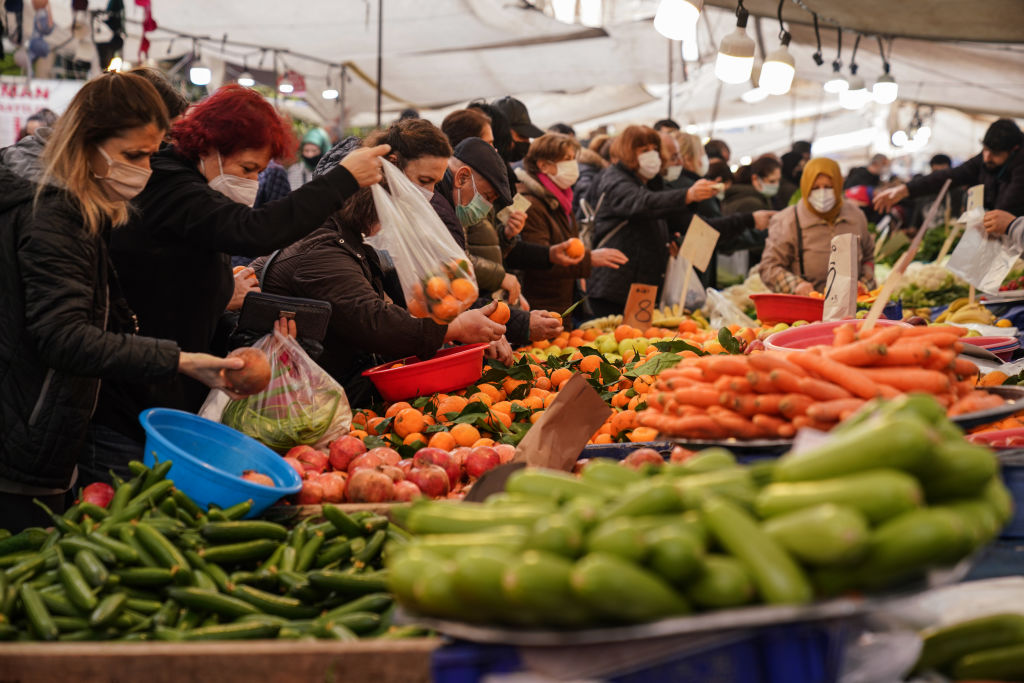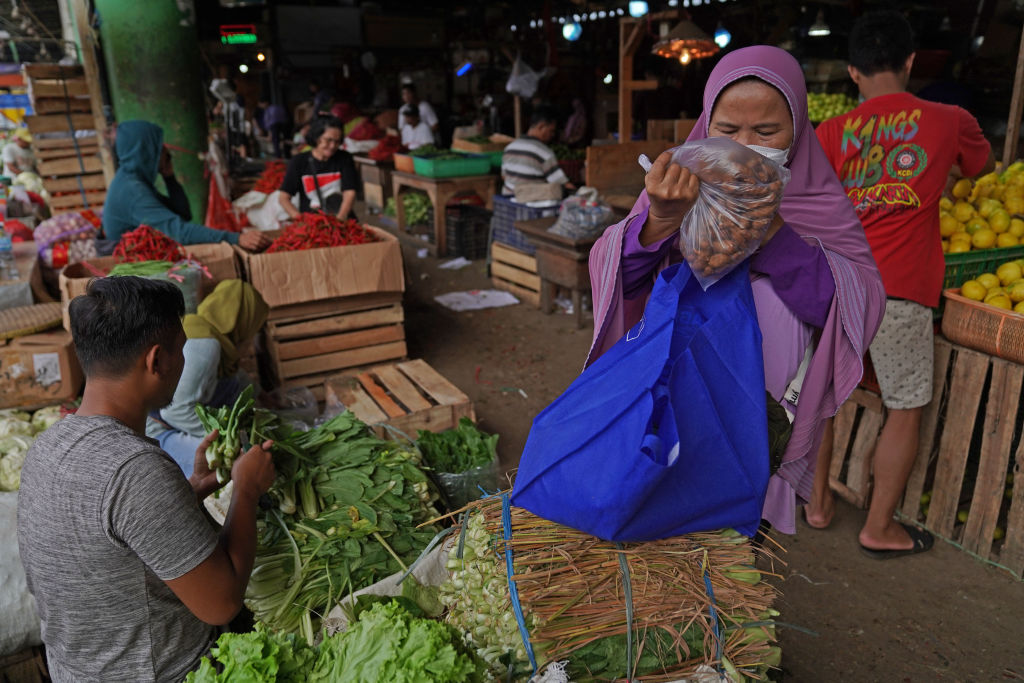
The shockwaves in global crop markets from Russia’s invasion of Ukraine are now spreading to store shelves.
Worries about surging sunflower oil prices triggered heavy buying over the weekend in Turkey, as footage of citizens trying to grab tins of cheaper oil at one store went viral. In Egypt, the world’s biggest wheat importer, prices for some unsubsidized bread have jumped in the past week.
The war has already driven wheat prices 70% higher in Chicago this year and is threatening to upend global food trade. Russia and Ukraine are vital suppliers of grains, vegetable oil and fertilizers, which means that supply disruptions will be felt all over the world. Wheat prices have surpassed levels last seen during the 2008 global food crisis—which helped spark widespread protests—and a United Nations index of food prices hit a record in February.
The shockwaves in global crop markets from Russia’s invasion of Ukraine are now spreading to store shelves.
Worries about surging sunflower oil prices triggered heavy buying over the weekend in Turkey, as footage of citizens trying to grab tins of cheaper oil at one store went viral. In Egypt, the world’s biggest wheat importer, prices for some unsubsidized bread have jumped in the past week.

The war has already driven wheat prices 70% higher in Chicago this year and is threatening to upend global food trade. Russia and Ukraine are vital suppliers of grains, vegetable oil and fertilizers, which means that supply disruptions will be felt all over the world. Wheat prices have surpassed levels last seen during the 2008 global food crisis—which helped spark widespread protests—and a United Nations index of food prices hit a record in February.
In Turkey, sunflower oil is the main cooking oil and a key component of food spending. Images of a 18-liter tin being sold for 989 liras ($69) spurred debates on the cost of living, while the item wasn’t available at all on the websites of some grocery chains.
The concern over sunflower oil prices is related to imports stuck at ships at the Sea of Azov, the northeastern tip of the Black Sea, according to Ahmet Atici, secretary-general of the Vegetable Oil Industrialists Association.
“Russia should let those ships go,” Atici said. The group sent a letter to the Trade Ministry earlier this month, warning that current supplies may last only to mid-April.
Read More: Why Sanctions on Russia Aren’t Targeting Oil and Gas
A total of 18 Turkish commercial vessels have been waiting at the Don River and the Russian ports at the Sea of Azov, a Turkish official told Bloomberg, speaking on condition of anonymity as he wasn’t authorized to speak publicly on the matter. Turkey is in contact with Russia to solve the issue, the official said.
Inflation in Turkey is already running at a 20-year high, and the last stretch of high global food prices a decade ago triggered protests and political unrest in numerous regions worldwide.
In Egypt, bakers say unsubsidized bread prices are rising because of higher costs since the invasion of Ukraine. A pack of five flat-bread loaves can now sell for about 7.5 pounds ($0.48) in the greater Cairo area, up from 5 pounds a week ago, according to Khaled Sabri, a member of the bakeries division at Egypt’s chamber of commerce.
A trade group in the European Union has warned it could run dry of sunflower oil by a similar time, with the lost volumes from Ukraine impossible to offset at short notice.

“In the near term, food prices in world markets should be expected to rise further amidst all the uncertainty,” the Agricultural Market Information System said in a report. “This will add to global food insecurity.”
Ukraine and Russia together account for about three-quarters of global exports of sunflower oil. Prices from Ukraine had rallied about 50% versus June, according to figures from UkrAgroConsult, the last of which was dated Feb. 24, the day of the invasion.
Turkey’s imports of vegetable oils surpassed $1 billion in 2021, official data show. The country—which ranks as the world’s top flour shipper—also increased authority over some crops exports last week, granting the agriculture ministry authority to make “periodical arrangements” if needed.
Even in Indonesia, the world’s biggest exporter of edible oils, high prices are starting to bite. The government is boosting control over local products, while supermarkets have imposed a one-pack-per-shopper buying limit on cooking oil. Families are bringing their young children to line up so they can buy more.
“We get information from parking attendants on when fresh supplies will arrive at our local mini-mart,” said Nining Ristyaningsih, a mom of three from Depok, near Jakarta. “Then I’d bring my husband and sometimes my kids to queue.”
—With assistance from Inci Ozbek, Abdel Latif Wahba and Firat Kozok.
More Must-Reads from TIME
- Introducing the 2024 TIME100 Next
- The Reinvention of J.D. Vance
- How to Survive Election Season Without Losing Your Mind
- Welcome to the Golden Age of Scams
- Did the Pandemic Break Our Brains?
- The Many Lives of Jack Antonoff
- 33 True Crime Documentaries That Shaped the Genre
- Why Gut Health Issues Are More Common in Women
Contact us at letters@time.com